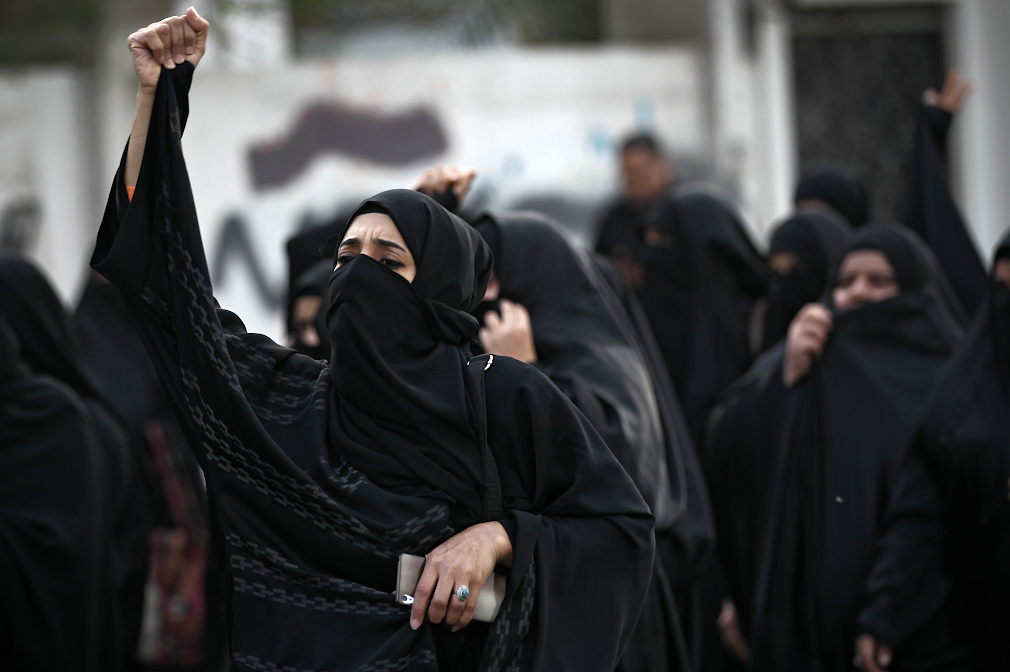The lifting of Saudi Arabia’s infamous driving ban last week leaves much to be celebrated throughout the kingdom, but the Saudi government still leaves a considerable amount to be desired where women’s rights are concerned. The Saudi government’s minimal step in promoting gender equality is an undeniable accomplishment for women’s rights activists, but only serves as the first step of many in a long journey to equality. While allowing women to drive is a stride in the right direction for the country, Saudi women continue to stare down great obstacles in the fight to achieve true gender equality.
Women have come to gain many freedoms since the nation’s founding in 1932, fighting tooth and nail for every bit of progress. Saudi Arabia was the last country to lift the ban preventing women from driving and, in 2016, ranked 141 out of 144 countries in gender parity according to the Global Gender Gap Report by the World Economic Forum. In this report, Syria, Pakistan, and Yemen were the only three countries that fell behind the kingdom. While it ranked above these three, it is important to note that Saudi Arabia maintains a gender parity in the realm of Syria and Yemen, which have both been marred by violent conflict for years. For Saudi Arabia, an 86-year systematic oppression afflicts a key population in the country and continues to find Saudi women lacking many basic rights. For Saudi women, access to many rights are restrained by the government and come at the expense of women’s rights defenders continually being jailed or exiled.
However, Saudi women have utilized their platforms on social media to advocate for women’s rights and participate in activism regardless. Activists like Manal Al-Sharif and Loujain al-Hathloul, who have long suffered the consequences of being women’s rights defenders and activists in Saudi Arabia, have been some of the many women in Saudi Arabia that have advocated for women’s rights both inside and outside of the country. In addition, Saudi women have launched multiple social media campaigns, such as the Women2Drive twitter account, to shed light on their lack of rights and to advocate for the right to drive. The lift on the driving ban is a major victory in the fight for women’s rights and a testament to ceaseless advocacy.
This persistent advocacy, however, has to work within the structure of Saudi society. With its traditions, arrangement of physical spaces, laws, and politicized religion, society has come to regulate the Saudi female identity for all generations under a guise of protection. In turn, the Saudi government’s overall crackdown on civil and political society is part of a wider suppression of political and social dissent, particularly related to human rights, freedom of expression, and free assembly and association.
Due to the unclear nature of Saudi law, what is understood of women’s rights in Saudi Arabia is mainly centered around what they cannot do. According to law, Saudi women are not permitted to file for divorce, marry, obtain employment, travel, or schedule non-emergency surgery without a male guardian’s permission. Though Saudi women may be able to apply for custodianship, they aren’t guaranteed the right to keep custody of their children if a divorce is granted. The guardianship system is a reminder to Saudi women that, from the moment they are born to the moment they die, they are the legal equivalent of a minor. There is no law that dictates the age a woman is considered an adult, which can also lead to child marriages. In Saudi Arabia, there is no ban on child marriages, making them legal under Saudi jurisdiction. Combined with the absence of laws providing women the right to enter a marriage freely, childhood marriages are a real threat for young women and girls.
Child custody, divorce, and free marriage are not the only restrictions and oppression women face under the guardianship system. Saudi women are not permitted to open a business or go about daily chores ithout male sponsorship. Women who wish to open their own businesses often have to call on at least two men to testify on her behalf before being granted a loan or license. Saudi women cannot apply for a national identification card or passport without a male guardian’s permission. The legal position of women in Saudi Arabia, as stated previously, is equal to a minor’s, and has in turn resulted in an informal legal rule that the a woman’s testimony is only worth half of a man’s. This often times leads to an unfair hearing in court proceedings. While the lift on the driving ban is a step in the right direction in reform for women’s rights in Saudi Arabia, it comes with complications. Saudi women now hold the liberty to drive themselves, but their right to freedom of movement is being violated on account of women still needing the permission of their male guardian to go anywhere.
Saudi women are coming to a point where the experiences of previous generations are different to that of today’s generation. However, they still face many of the same struggles that the Saudi government has imposed on women’s lives. A woman’s experience in Saudi Arabia is dependent on her male guardian and his good will, or lack thereof. The defiant women at the forefront of the fight for gender equality are deserving of recognition, but the fight for true gender equality must go on as many aspects of everyday life are still-off limits for Saudi women.
Celia Pena-Gomez is an Advocacy intern with ADHRB.





